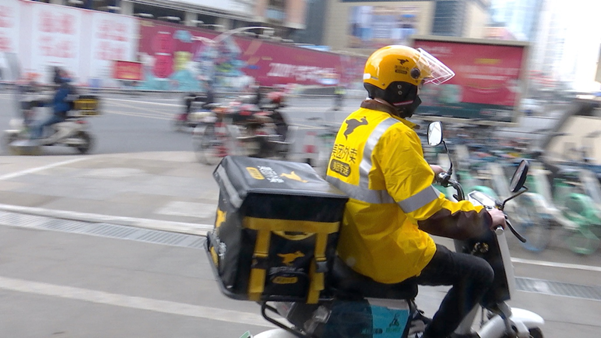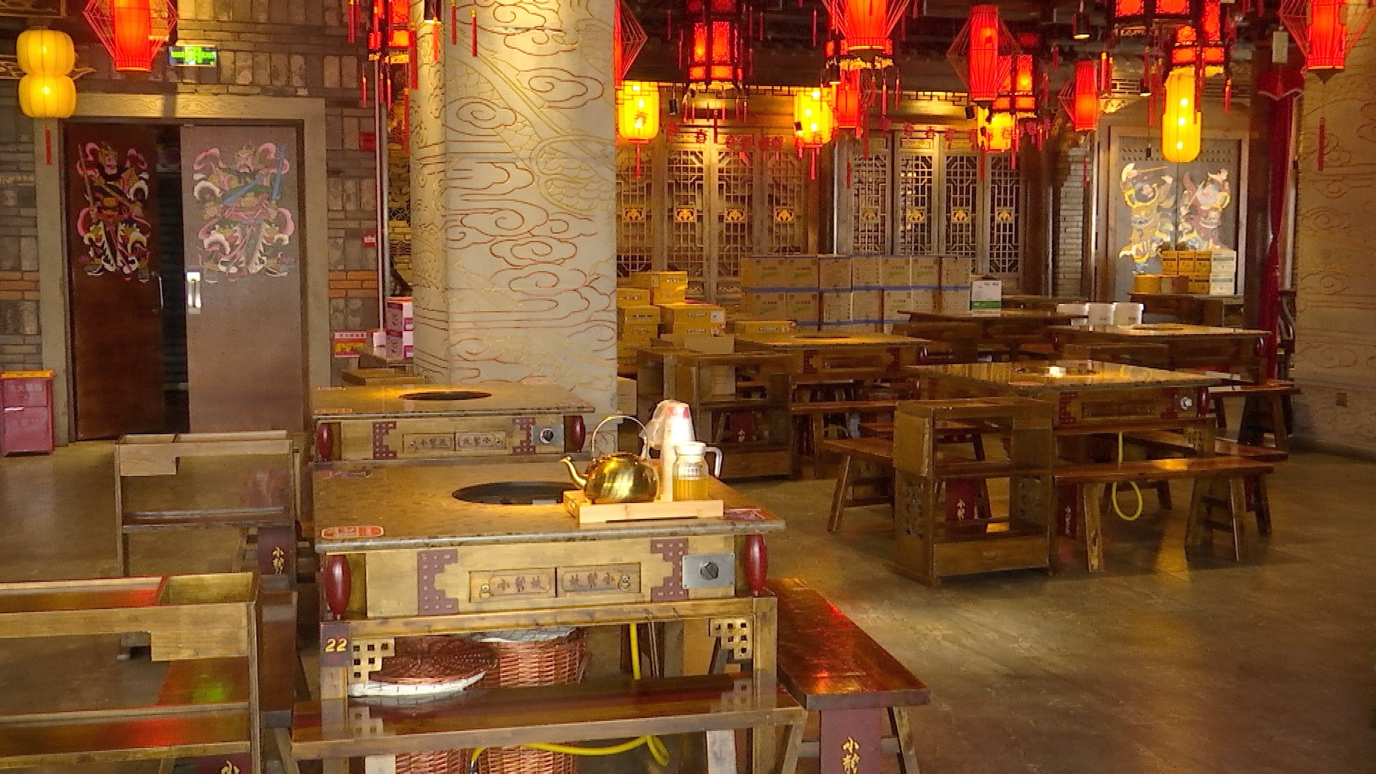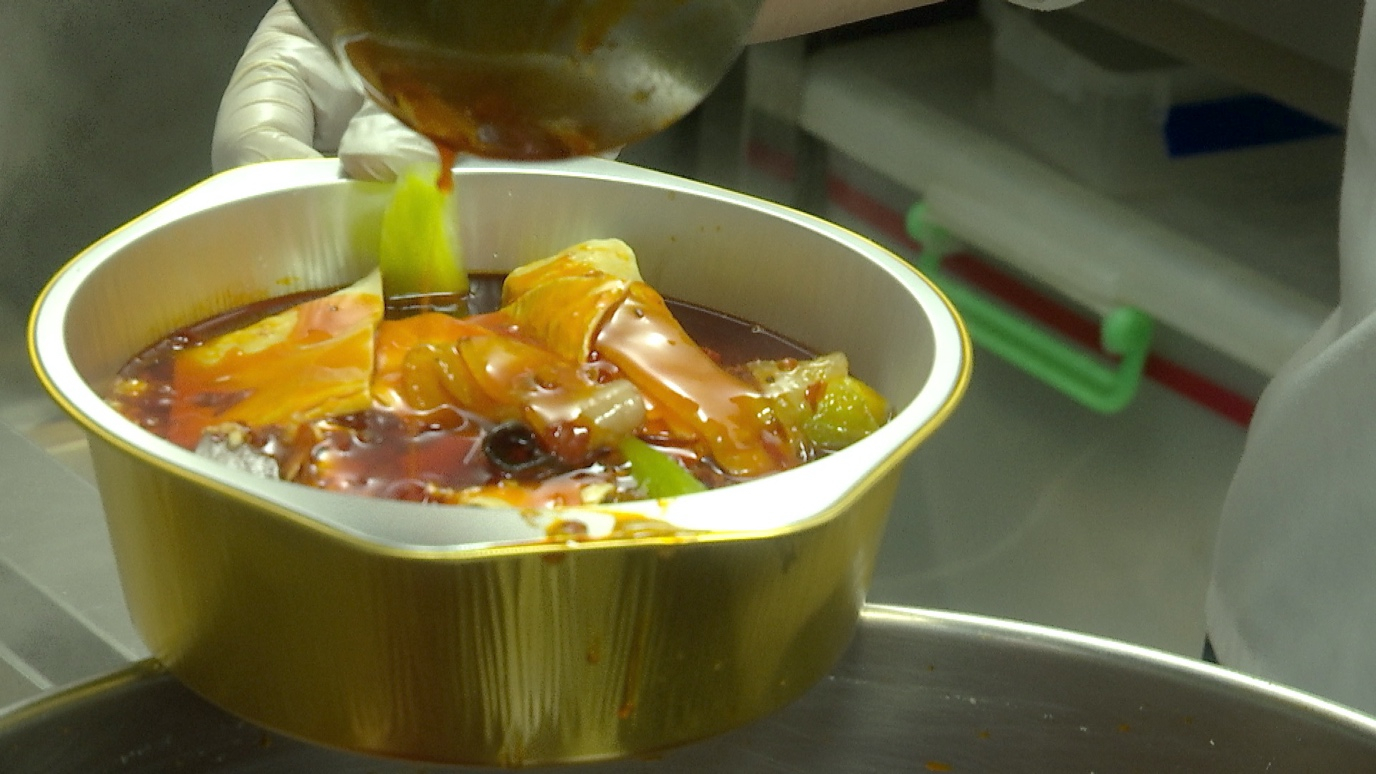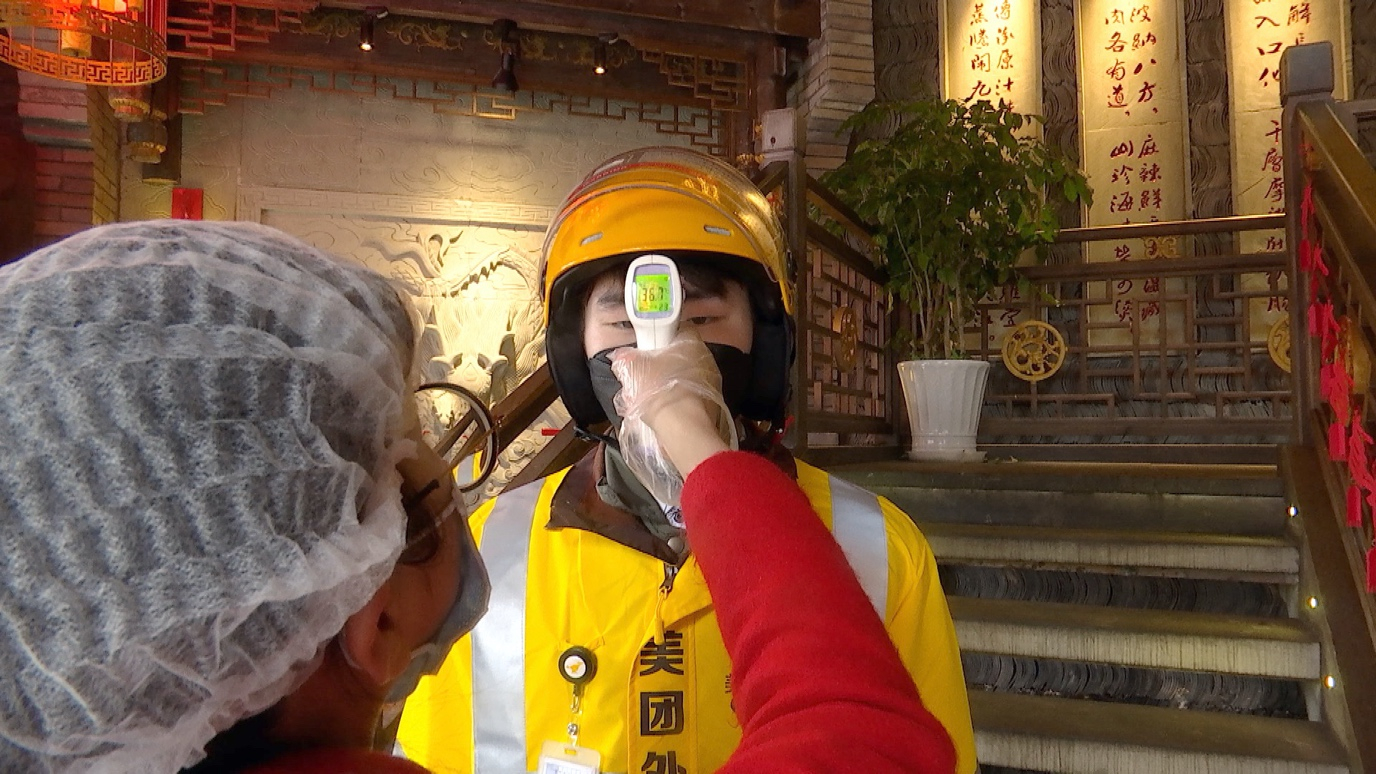03:42

A huge number of restaurants across China have been temporarily closed amid the novel coronavirus outbreak, as most people avoid going out. In southwest China's Chengdu – a city famous for its hot pot – many restaurants have been trying to adapt to stay in business.
Battered catering business
Chengdu City has over 20,000 restaurants of all shapes and sizes. Most of them specialize in Sichuan cuisine, well known for its hot and spicy flavor as well as a variety of seasonings used. Around 1,500 of them are hot pot joints.
However, following the spread of COVID-19, nearly all of them suspended their business in late January during the Lunar New Year holiday. The catering business has also been struck with a heavy blow. One of the most popular Sichuan cuisine restaurants, Hongxing Restaurant, had to cancel more than 5,000 orders.
Li Rongdong, president of the restaurant established in 1996, told CGTN that for safety concerns, they reached out to customers and persuaded them to drop their orders, which resulted in a financial loss of over 10 million yuan, or 1.4 million U.S. dollars, at its eight stores.
The implications have rippled through the hot pot business, a hallmark of Chengdu as a popular tourist destination. ShooLoongKan Holdings Group – one of the most famous hot pot restaurants in the city – closed all 760 stores across China for a week. The group suffered a financial hit twice the amount of Hongxing Restaurant.
In fact, the pain is excruciating for many working in the hospitality industry. Even though operations are suspended, businesses still have a slew of expenses, including rent, taxes, as well as salaries.

An inside look at ShooLoongKan hot pot restaurant, an empty space with no customers. /CGTN Photo
An inside look at ShooLoongKan hot pot restaurant, an empty space with no customers. /CGTN Photo
The way out
The epidemic outbreak has cast a shadow over the entire industry. Chengdu Catering Profession Association (CCPA), a non-profit social entity guiding the city's food industry, came up with strategies for businesses to reduce damages.
Yuan Xiaoran, secretary general of the CCPA told CGTN in an exclusive interview that her association issued three notices to restaurant operators ahead of an effective lockdown of the city, appealing restaurant owners to stay in business, and adopt alternative ways, like food delivery services, to meet the public's daily needs.
After an initial screening of food safety and epidemic prevention capability, 399 restaurants across the city were certified. They were trained on precautionary measures to cope with the virus, including strict regulations for staff members to put on face masks, and protective gears, as well as specially-designed packages to prevent food from potential contamination.
It also worked together with online food delivery companies like ELEME Inc. to streamline procedures and tighten up precautions against the novel coronavirus. For each delivery, food suppliers would attach a card with information such as body temperatures and names of all people involved in the production.

ShooLoongKan hot pot offers ready-to-eat meals for home delivery. /CGTN Photo
ShooLoongKan hot pot offers ready-to-eat meals for home delivery. /CGTN Photo
Rong Xing, deputy general manager of ShooLoongKan Holdings Group told CGTN that "if we compare the number of transactions before and after the epidemic, it's been tripled. Meanwhile, sales have increased by over 220 percent." The company receives around 2,000 orders online every day.
With a high demand for food services, companies are coming up with different ways to compete. In the hot pot business, for instance, ShooLoongKan offers ready-to-eat meals for home delivery, while Dalongyi delivers ingredients for hot pots, allowing customers to prepare their own.

Staff at Dalongyi hot pot restaurant pack up food parcels. It delivers hot pot ingredients to customers. /CGTN Photo
Staff at Dalongyi hot pot restaurant pack up food parcels. It delivers hot pot ingredients to customers. /CGTN Photo
Lose to win
The revenue restaurant operators have gained from food delivery accounts for only a tiny part of the total amount required to keep the business going. Nearly all of them are currently suffering financial losses.
What then is the point in remaining open?
Yuan reckons that "as a UNESCO city of gastronomy, Chengdu needs to keep its restaurants open, and liven itself up…it shows a sense of responsibility. The epidemic will eventually be contained, but the city needs more growth." She is confident that all these sacrifices would prove to be worthwhile when the outbreak in contained in the unforeseeable future.

Restaurant staff checks the body temperature of a courier. /CGTN Photo
Restaurant staff checks the body temperature of a courier. /CGTN Photo
To make it through this trying time, online food service platforms have decided to either scrap or reduce the amount of commission paid to business operators until the end of February, or even longer.
As the epidemic continues to dent corporate profits and dampen consumer spending, Chinese governments at all levels have responded with policies to support the resumption of businesses, including tax cuts, rent reductions, and financial assistance.
But for the restaurants, what matters more, is putting a quick end to the epidemic, and bringing people back to their dining tables.